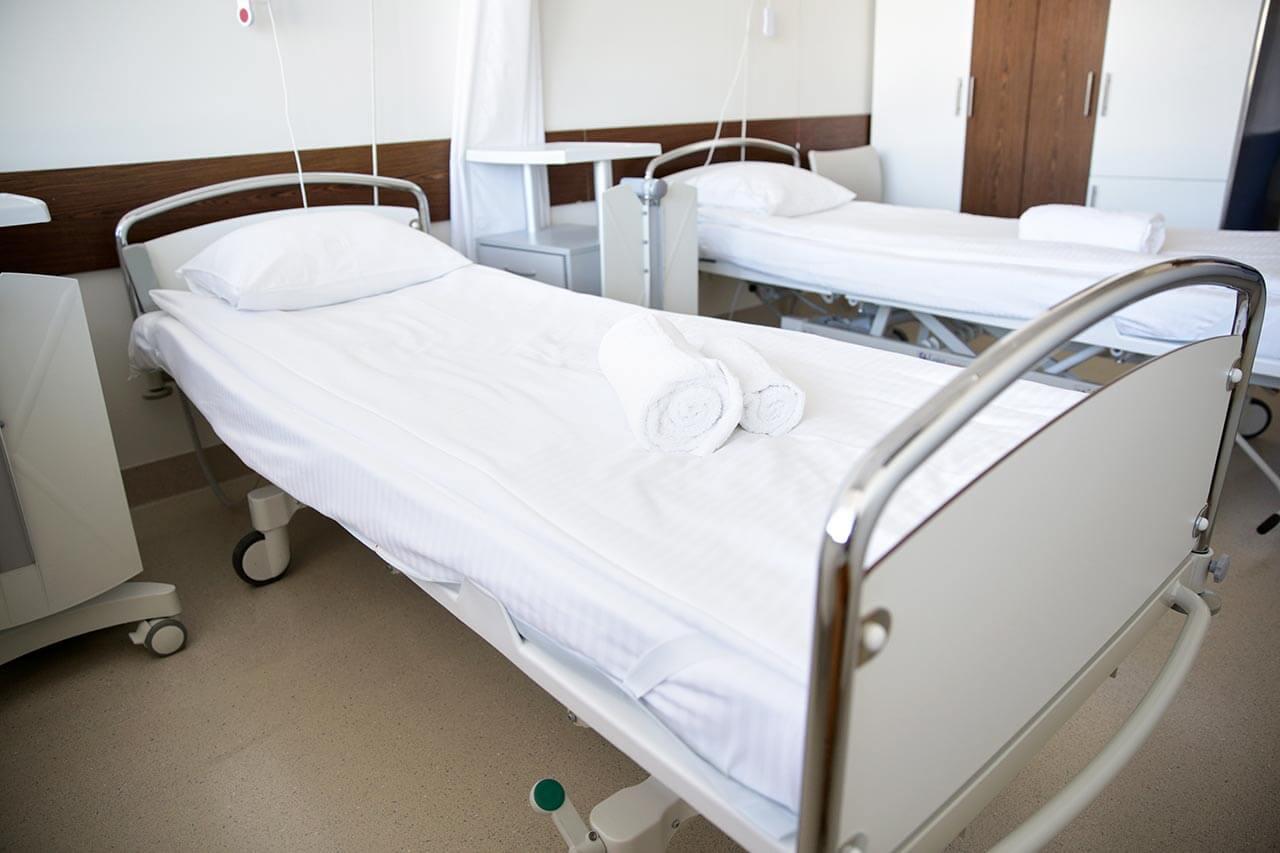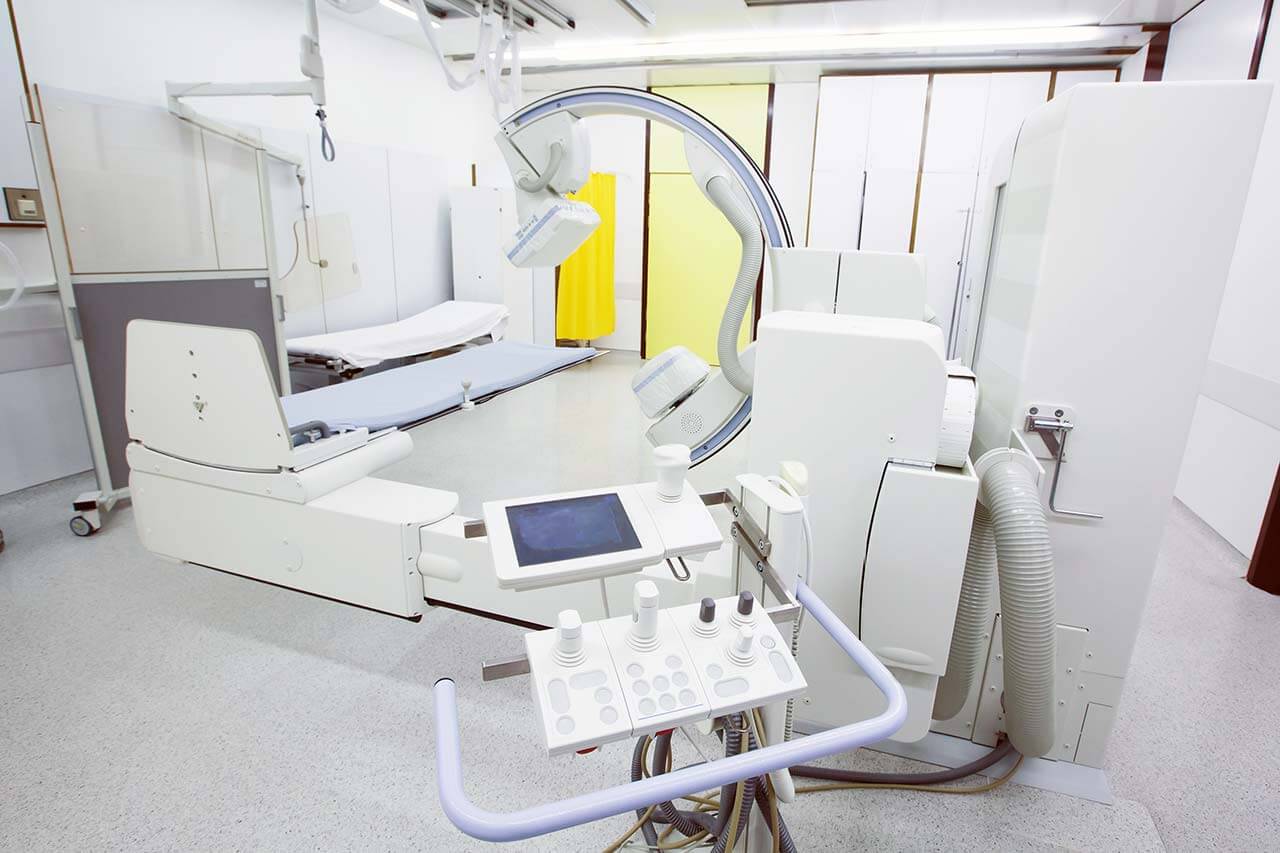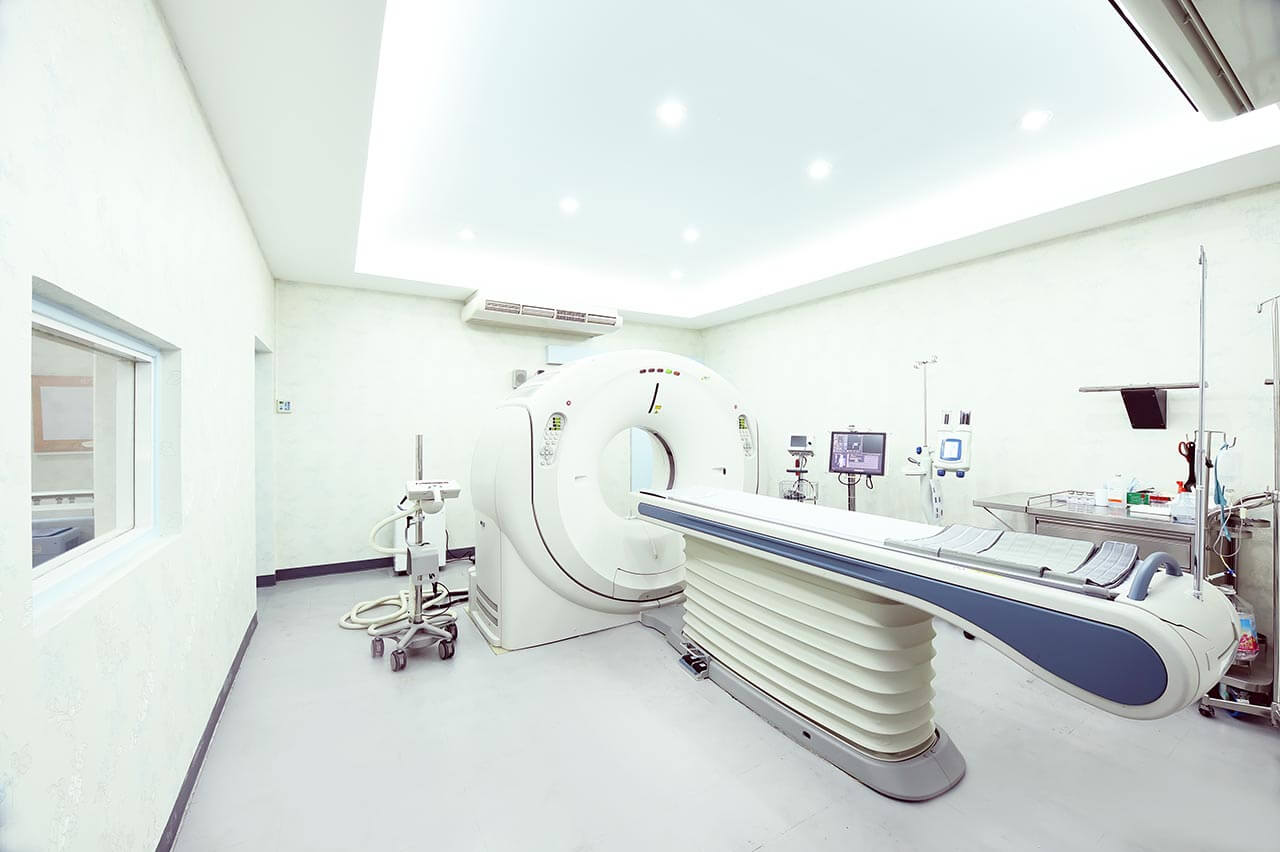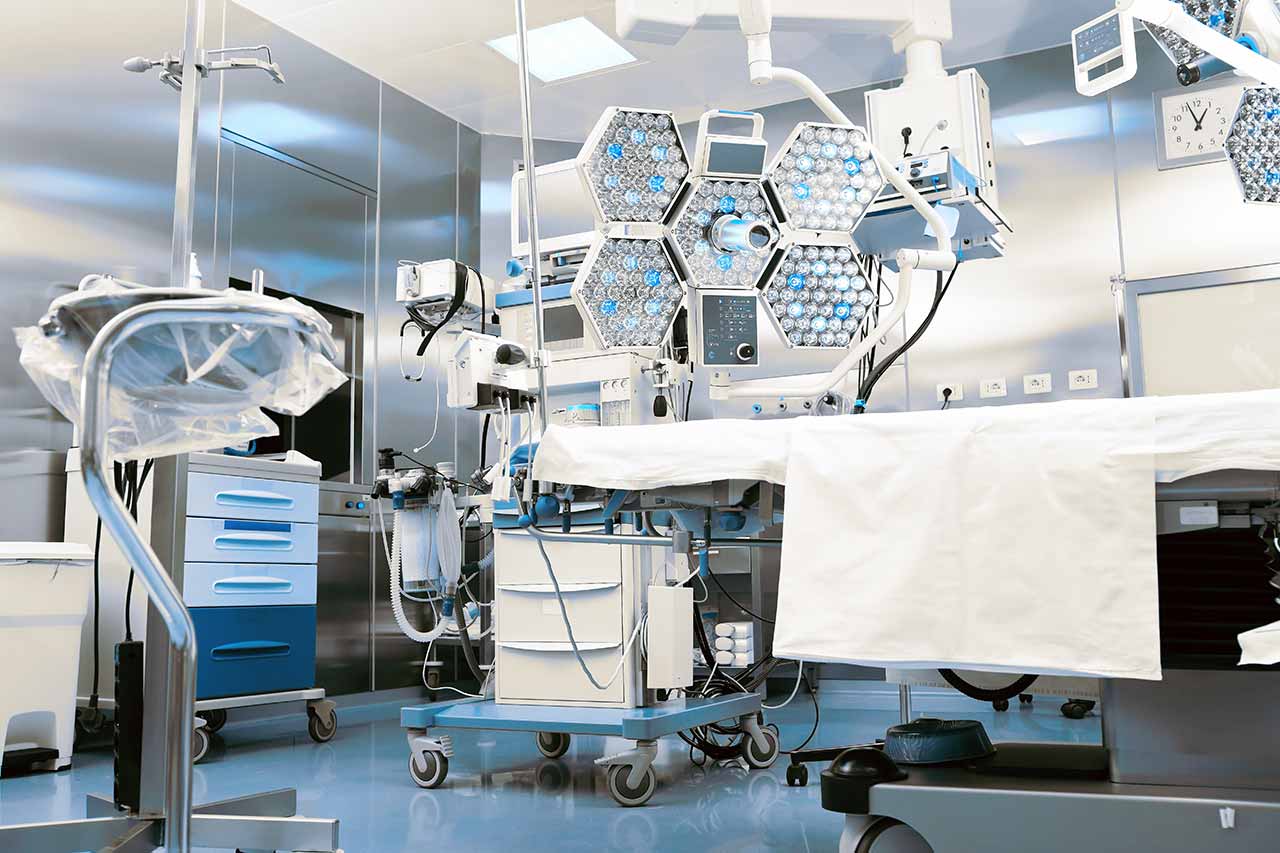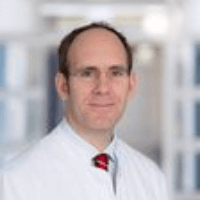
The program includes:
- Initial presentation in the clinic
- clinical history taking
- review of medical records
- physical examination
- urological examination
- laboratory tests:
- complete blood count
- general urine analysis
- biochemical analysis of blood
- inflammation indicators (CRP, ESR)
- indicators blood coagulation
- ultrasound of the urogenital system
- preoperative care
- abscess resection
- symptomatic treatment
- control examinations
- the cost of essential medicines and materials
- nursing services
- full hospital accommodation
- explanation of future recommendations
Required documents
- Medical records
- Scrotal ultrasound (if available)
Service
You may also book:
 BookingHealth Price from:
BookingHealth Price from:
About the department
According to the Focus magazine, the Department of Adult and Pediatric Urology at the University Hospital Essen ranks among the top German medical facilities specializing in prostate cancer treatment!
The department offers the full range of conservative and surgical treatment of diseases of the urogenital system in patients of all age groups. The main fields of specialization include surgical and drug treatment of urological tumors, plastic reconstructive interventions for correcting anomalies of the external genital organs and urinary tract. The spectrum is also complemented by genital correction and transgender operations in adults. The department annually provides its medical services to more than 2,700 inpatients and 6,700 outpatients. The Chief Physician of the department is Prof. Dr. med. Boris Hadaschik.
The department has 55 beds for inpatient treatment. The surgical treatment is carried out in four modern operating rooms of the department. The department's doctors widely practice both traditional treatment methods and the very latest therapeutic options, for example, minimally invasive treatments, such as stereotactic prostate biopsy, robotic laparoscopy (using da Vinci Surgical System).
Close cooperation with other departments of the hospital and private practitioners contributes to an optimal and comprehensive treatment. When starting treatment of each patient, the department's specialists aim to ensure the high-quality, effective therapy adapted to the individual needs and wishes of the patient.
The service range of the department includes:
- Diagnostics and treatment of oncological urologic diseases
- Radical surgery in kidney, bladder and prostate cancer, as well as in testicular tumors
- Laparoscopic interventions in kidney and prostate tumors
- Organ-conserving kidney tumor surgery
- Retroperitoneal lymph node dissection in testicular tumors
- All methods of urine diversion (for example, artificial bladder formation)
- Brachytherapy and radiation therapy in prostate cancer
- MRI-guided prostate biopsy (fusion biopsy)
- Chemo-, immuno- and systemic therapy for all urologic tumors
- Clinical examinations
- Outpatient chemotherapy
- Follow-up care after the treatment of oncological diseases
- Palliative and pain therapy
- Provision of a second opinion
- Diagnostics and treatment of pediatric urologic diseases
- Correction of congenital malformations of the genitourinary organs
- Plastic reconstructive surgery (including plastic repair of the kidney pelvis, hypospadias repair, genital reconstructive surgery, endoscopic surgery)
- Andrology
- Diagnostics and treatment of infertility (cooperation with the Fertility Center NOVUM)
- Diagnostics and treatment of erectile dysfunction, including implantation of a cavernous body prosthesis
- Treatment of abnormalities of the external genitalia
- Men's health, age-related changes in men
- Treatment of sex differentiation disorders (transsexualism)
- Sex reassignment surgery
- Breast augmentation
- Microsurgery
- Fertility restoration
- Varicocele repair
- Autotransplantation
- Hypospadias repair
- Minimally invasive surgery (conventional and robotic techniques)
- Lymphadenectomy
- Prostatectomy
- Nephrectomy
- Nephroureterectomy
- Organ-conserving resection of the kidney tumors
- Kidney pelvis plastic surgery
- Removal of kidney cysts
- Lymphocele fenestration
- Undescended testicle repair
- Varicocele repair
- Endoscopic treatment of benign prostatic hyperplasia and bladder tumors
- Video-assisted transurethral resection of the prostate
- Video-assisted transurethral resection of the bladder, including photodynamic diagnostics and narrowed-band endoscopy
- Treatment of kidney stone disease
- Endoscopic therapy with ureterorenoscopy (rigid and flexible)
- Minimally invasive percutaneous therapy (PNL and Mini-PNL)
- Extracorporeal shock wave lithotripsy
- Interventional procedures
- Embolization
- Thermoablation procedures in tumors or metastases
- CT-guided biopsy
- Urinary incontinence treatment
- Treatment of incontinence and enuresis
- Treatment of incontinence in the elderly
- Treatment of stress urinary incontinence in adults
- Treatment of neurogenic disorders of bladder emptying
- Video dynamics, electrostimulation, BioFeedback
- Medical therapy in urinary incontinence
- Surgical therapy, including bladder elevation, sacropexy, minimally invasive procedures (for example, injections into the urinary sphincter) and artificial sphincter implantation
- Outpatient surgery
- Circumcision
- Endoscopic procedures
- Varicocele and hydrocele surgery
- Surgical interventions in children
- Other medical services
Curriculum vitae
Prof. Boris Hadaschik studied medicine in Heidelberg, Louisville, Detroit and New Orleans. Afterwards he trained in Surgery and Urology in Heidelberg and Mainz. In 2006, Boris Hadaschik was awarded a two-year postdoctoral research fellowship at the Vancouver Prostate Centre from the German Research Foundation. He obtained the German Urological Association’s highest scientific award, the Maximilian Nitze Prize, for his work regarding "Novel intravesical agents against non-muscle invasive bladder cancer in a validated orthotopic mouse model". In 2010, Boris Hadaschik became an Associate Professor in the Department of Urology at the University Hospital Heidelberg. His main interests lie in the development of prostate cancer diagnostics (for example, imaging-guided biopsy) and therapy (for example, molecularly-targeted radiopharmaceuticals) to improve and customize cancer treatment and its outcomes. Prof. Boris Hadaschik is a Co-Founder of the Ginsburg Study Group for Comprehensive Prostate Diagnostics and a Member of several international Working Groups to optimize MRI-targeted prostate biopsy. In addition, he is a Principal Investigator of the German multicentre PROBASE trial for prospective randomized evaluation of risk-adapted prostate-specific antigen screening in 50,000 young men.
Photo of the doctor: (c) Universitätsklinikum Essen
About hospital
According to the authoritative Focus magazine the University Hospital Essen ranks among the top German hospitals!
With 27 specialized departments and 24 institutes, the hospital in Germany is a maximum care medical facility. The hospital has 1,300 beds for inpatient treatment. A highly qualified medical team of more than 6,000 employees takes care of the health of patients. All the specialists give preference to an interdisciplinary medical care, which guarantees a comprehensive treatment taking into account the smallest aspects of a particular pathology. The hospital annually diagnoses and treats more than 50,000 inpatients and about 195,000 outpatients, which testifies to the prestige of the medical institution and the highest quality of treatment in Germany.
The hospital presents all the modern medical fields. Nevertheless, special attention should be given to the following major fields of specialization as oncology, transplantology and cardiology, as well as research activities in the field of immunology, infectology and translational examinations of pathologies of the nervous system and behavioral disorders.
Established on the basis of the standard American model of Comprehensive Cancer Centers, the West German Cancer Center (WTZ) in Essen was recognized as the best medical facility of this kind in Germany in 2009. Nowadays, the center holds leading positions both on the national and international medical markets. The basis of its successful clinical practice is the use of very latest treatment methods and an interdisciplinary approach to each clinical case. The West German Organ Transplant Centre (WZO) is also recognized as one of the best in the country and one of the few in Germany, which specializes in the transplantation of all vital organs, such as kidney, liver, pancreas, heart and lungs. Special attention is paid to kidney and liver transplantation.
The hospital in Germany is proud of its high-tech medical equipment, experienced and competent staff, productive research activities, which allow to guarantee the accurate diagnostics and effective treatment, including rare and very complex clinical cases for every patient. Consequently, the hospital is considered a perfect embodiment of high-quality treatment in Germany.
Photo: (c) depositphotos
Accommodation in hospital
Patients rooms
The patients of the University Hospital Essen live in comfortable rooms designed in bright colors. The standard room furnishing includes an automatically adjustable bed, a bedside table, a personal wardrobe, a personal call button with a built-in light panel, a telephone, a TV and a radio. The Internet access is available at an additional cost.
Meals and Menus
The patients of the hospital are offered a daily choice of three menus. The patients are also offered alternative types of menus, if their religion requires the exclusion of certain foods. If you follow a certain diet or suffer from food intolerance, you will be provided with a menu of your choice by discussing it with your attending physician in advance. The hospital also houses a bistro and a cafe, where one can have a tasty snack, enjoy hot and cold drinks.
Further details
Standard rooms include:
Accompanying person
There are a few types of hotels for the accompanying persons, who want to stay near the hospital. The hotel of the Essen University Hospital offers apartments on the first floor of the nursing high-rise building. The DRK nursing also offers single and double rooms.
The hotel in Grugapark is available for the parents, whose children stay in the hospital. The parents of children with cancer can also stay here. Moreover, The Department of Pediatrics offers its rooms for parents.
